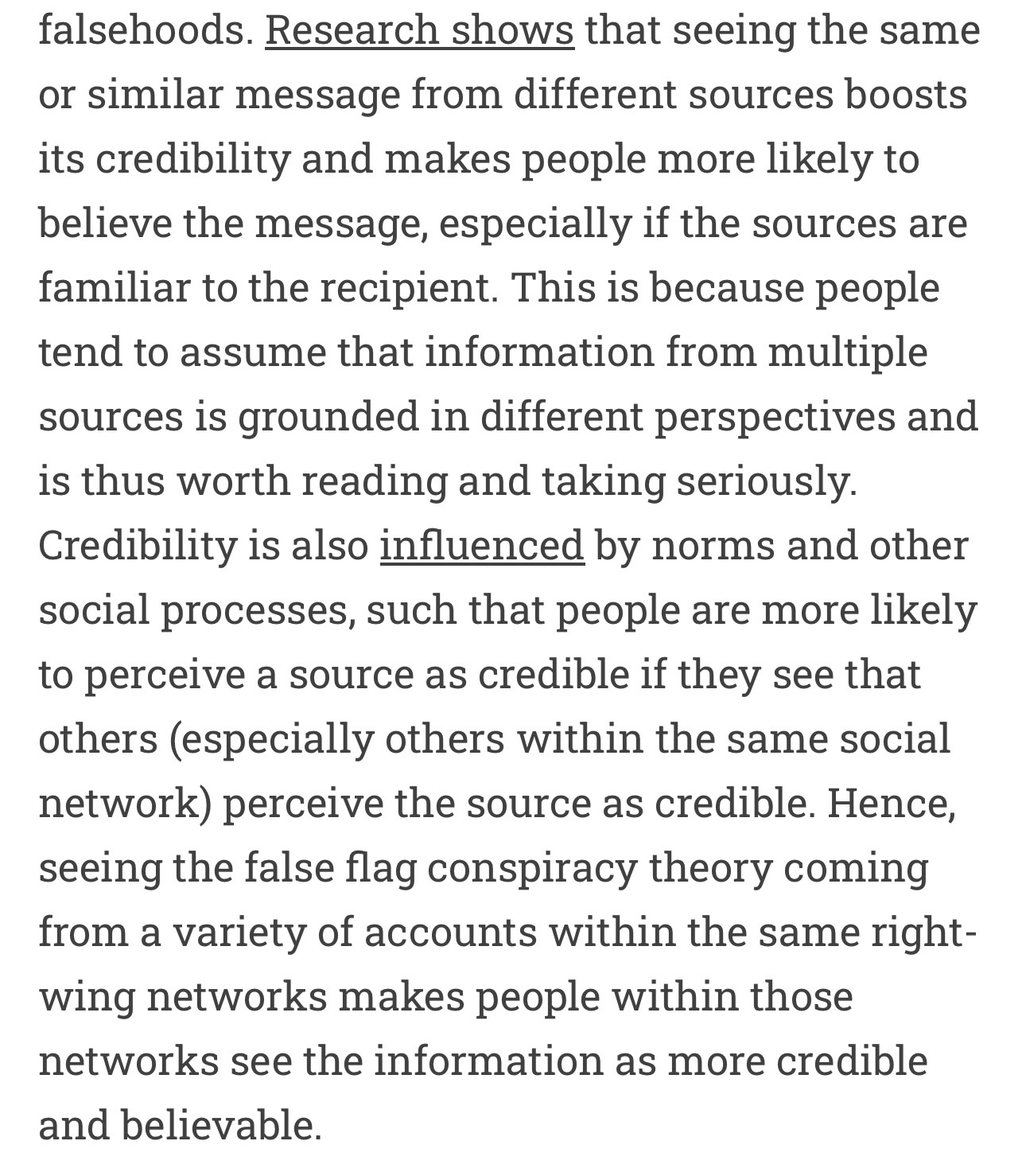Caroline Orr Bueno on Nostr: For example, conspiracy theorists exploit cognitive shortcuts that make us more ...
For example, conspiracy theorists exploit cognitive shortcuts that make us more likely to believe information when we see it repeatedly, from multiple sources, and from sources within our own social networks. This is why you’ll often see conspiracy theory narratives echoed in nearly verbatim fashion by clusters of accounts. Even when we are talking about utter bullshit, the effects of repetition, familiarity, frequency, and perceived similarity still make information seem more credible.

Published at
2024-01-05 18:50:28Event JSON
{
"id": "6f0bcdda292940cb7734d10d63396aa2813e95d96255a562f53faac658f4dd36",
"pubkey": "d91fc90dad795ceb44a79ad146c9da64094092e26687166e60e0ae20543b3593",
"created_at": 1704480628,
"kind": 1,
"tags": [
[
"e",
"3668961729c8abd6e87c37669e7507124c14b4d65765bdd84c637b0a4b8376f6",
"wss://relay.mostr.pub",
"reply"
],
[
"proxy",
"https://newsie.social/users/rvawonk/statuses/111704842452993039",
"activitypub"
]
],
"content": "For example, conspiracy theorists exploit cognitive shortcuts that make us more likely to believe information when we see it repeatedly, from multiple sources, and from sources within our own social networks. This is why you’ll often see conspiracy theory narratives echoed in nearly verbatim fashion by clusters of accounts. Even when we are talking about utter bullshit, the effects of repetition, familiarity, frequency, and perceived similarity still make information seem more credible.\n\nhttps://assets.newsie.social/media_attachments/files/111/704/833/823/478/064/original/f29e67691333cf0d.png",
"sig": "6ff0eda230c435ae77c2053326cb7963a8b200cf694d21a42f83b550cf0f7b2817d5951c3a29594140bb65de4c4f09c9c7fd1362a0ce68b8207d3ffecd94319d"
}

